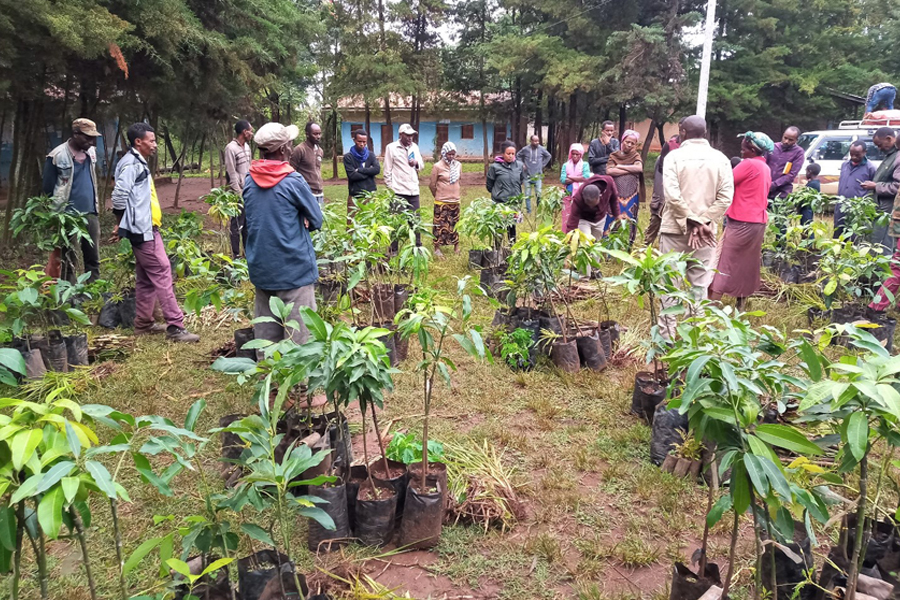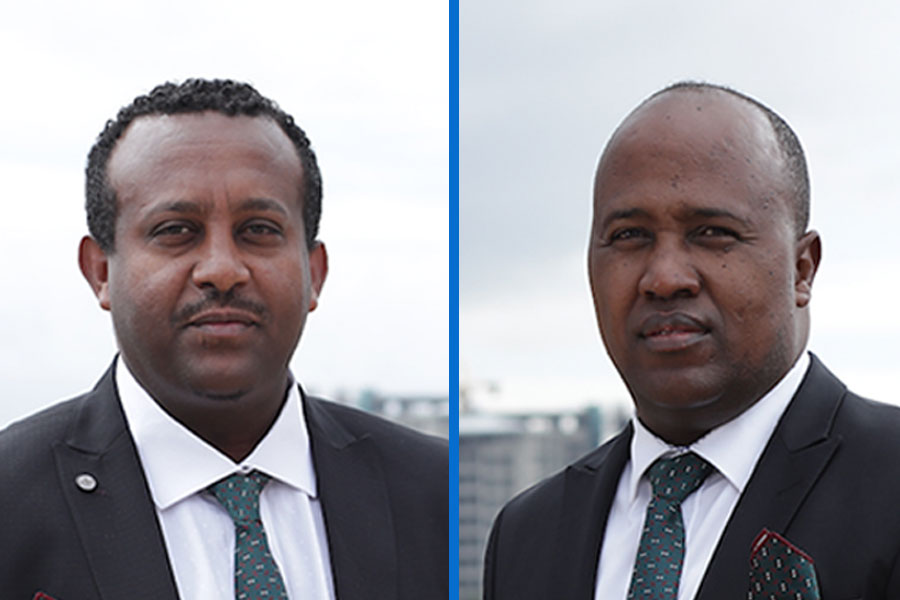
Viewpoints | Apr 10,2021
Mar 18 , 2023
By Bjorn Lomborg
Corruption is an enormous, global challenge, likely costing more than one trillion dollars annually, or 120 dollars for everyone globally.
World leaders have long promised to tamp down on corruption. Unfortunately, we are getting nowhere. A newly released research identifies a surprisingly straightforward, cheap way to reduce corruption that can save countries hundreds of millions or even billions of dollars.
Part of the reason it is so hard to tackle corruption is that it is incredibly valuable for the officials to take bribes, while customers paying up often get better or quicker service. Yet, politicians have promised to substantially reduce corruption as part of the Sustainable Development Goals (SDGs), agreed to by all governments worldwide.
Unfortunately, politicians are not delivering. The corruption perception index from Transparency International shows that, at a global level, there has been absolutely zero progress over the past decade. The world was as corrupt last year as it was when the measure started a decade ago. On current trends, we will not curtail corruption in 2030—or at any time in the future.
Reducing corruption is not the only global promise we are missing. It is one of the hundreds of grand promises in the SDG that will come to an end in 2030; We are failing at nearly all of them. We will reach the development promises half a century late on current trends.
We need to do better. Now is the right time to start this conversation: 2023 is the halftime point for the SDG promises, but we are truly nowhere near halfway to achieving them.
The Copenhagen Consensus has worked for years with dozens of the world’s top economists to identify the areas where the most progress on the SDGs can be made. We should embrace the smartest policies first. Our new research on corruption shows that improving public procurement should be a top priority for many governments.
In almost every country, the government is by far the largest buyer of works, goods, and services from the private sector. Public procurement adds up to almost 13 trillion dollars, 15pc of the global GDP. In the countries where the poorest half of the world’s population lives, procurement makes up half of all government expenditure. This procurement can be made less corrupt and more effective by putting the whole system online, making it transparent.
Electronic procurement or “e-procurement” lets many more companies hear about procurement offers, ensures more bids can be submitted and means governments lose less money through corruption and waste.
Ethiopia introduced its first e-procurement system last year, but four-in-10 low- and lower-middle-income countries are still missing a full e-procurement system. Our research studied the costs and impacts of 11 e-procurement initiatives in low-income countries such as Bangladesh and Rwanda, middle-income countries such as Ukraine and Tunisia, and high-income countries like Italy and South Korea. It shows that it takes a year on average to plan for an e-procurement system, another one and a half years to design and build, and two and a half years to pilot it.
Over the first 12 years, costs average 16.7 million dollars, irrespective of a country’s size—a trivial sum compared to most government budgets.
There are many benefits. A well-designed e-procurement system allows for proactive monitoring and the identification of corruption. Concerns can be automatically flagged for action. And e-procurement increases the number of bidders: In India’s Karnataka State, the number of suppliers increased from 130 to 4,800 in the first three years. Governments can spend less on advertising for bids when they have an easily accessible system. The Philippine government saved nine million dollars annually on newspaper advertisements.
Importantly, introducing e-procurement speeds up procurement.
In South Korea, e-procurement meant the duration of bid processing was cut from an average of 30 to just 2 hours, whereas in Argentina, the process fell by more than 11 days. Of course, doing things quickly is not the same as doing things correctly. But there is evidence that digitizing procurement means better oversight and improved service delivery. India, for instance, saw a 12pc increase in road quality grade after shifting to an e-procurement system.
Perhaps the most important and well-documented consequence is that e-procurement cuts the overall cost of government spending.
Our research shows that the average saving is 6.75pc, which matters when you spend billions. For the average low-income country, the savings across the first 12 years amount to more than 600 million dollars. For each dollar spent, the low-income country would save 38 dollars. For lower-middle-income countries, the average savings are more than five billion dollars over the first 12 years; each dollar spent creates more than 300 dollars in social benefits.
This makes e-procurement one of the world’s most effective policies.
Ending corruption entirely may not be in our grasp. But there is compelling evidence that around the world, e-procurement can reduce it at a low cost while making societies much better off.
PUBLISHED ON
Mar 18,2023 [ VOL
23 , NO
1194]


Viewpoints | Apr 10,2021

Viewpoints | Oct 18,2025

Fortune News | Jun 22,2024

Viewpoints | Apr 25,2020


Viewpoints | May 31,2025

My Opinion | Apr 01,2023

Commentaries | Sep 06,2020

Fortune News | Nov 13,2021

Editorial | Feb 17,2024

Photo Gallery | 178105 Views | May 06,2019

Photo Gallery | 168315 Views | Apr 26,2019

Photo Gallery | 159078 Views | Oct 06,2021

My Opinion | 137048 Views | Aug 14,2021
Commentaries | Oct 25,2025

Dec 22 , 2024 . By TIZITA SHEWAFERAW
Charged with transforming colossal state-owned enterprises into modern and competitiv...

Aug 18 , 2024 . By AKSAH ITALO
Although predictable Yonas Zerihun's job in the ride-hailing service is not immune to...

Jul 28 , 2024 . By TIZITA SHEWAFERAW
Unhabitual, perhaps too many, Samuel Gebreyohannes, 38, used to occasionally enjoy a couple of beers at breakfast. However, he recently swit...

Jul 13 , 2024 . By AKSAH ITALO
Investors who rely on tractors, trucks, and field vehicles for commuting, transporting commodities, and f...

Oct 25 , 2025
The regulatory machinery is on overdrive. In only two years, no fewer than 35 new pro...

Oct 18 , 2025
The political establishment, notably the ruling party and its top brass, has become p...

Oct 11 , 2025
Ladislas Farago, a roving Associated Press (AP) correspondent, arrived in Ethiopia in...

Oct 4 , 2025
Eyob Tekalegn (PhD) had been in the Governor's chair for only weeks when, on Septembe...

Oct 25 , 2025 . By YITBAREK GETACHEW
Officials of the Addis Abeba's Education Bureau have embarked on an ambitious experim...

Oct 26 , 2025 . By YITBAREK GETACHEW
The federal government is making a landmark shift in its investment incentive regime...

Oct 27 , 2025
The National Bank of Ethiopia (NBE) is preparing to issue a directive that will funda...

Oct 26 , 2025 . By SURAFEL MULUGETA
A community of booksellers shadowing the Ethiopian National Theatre has been jolted b...